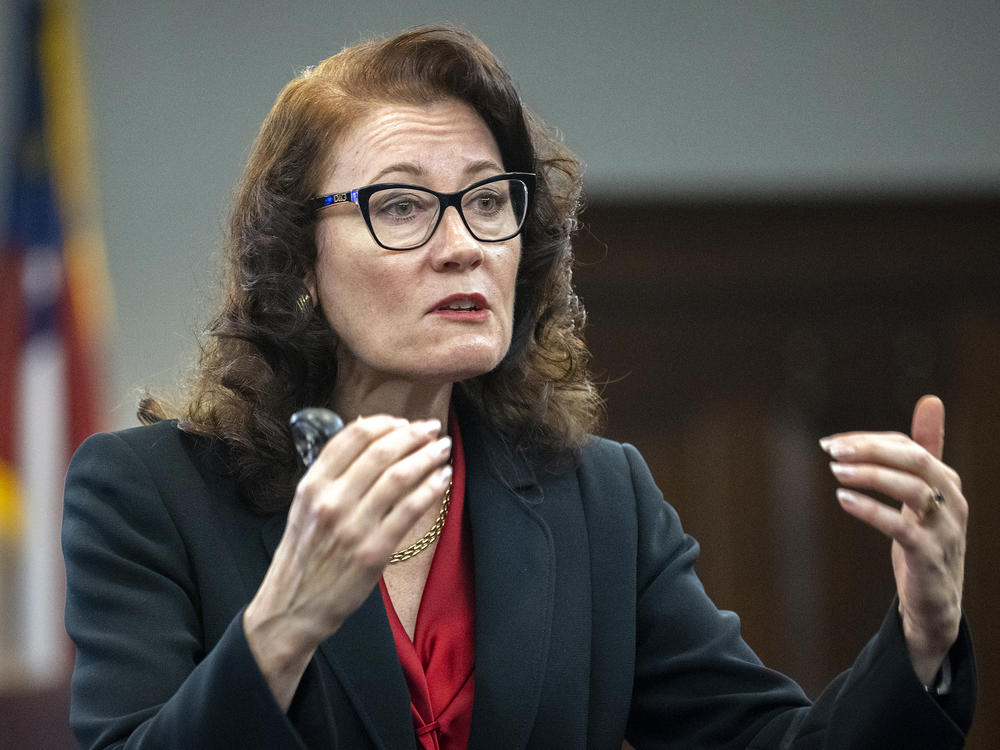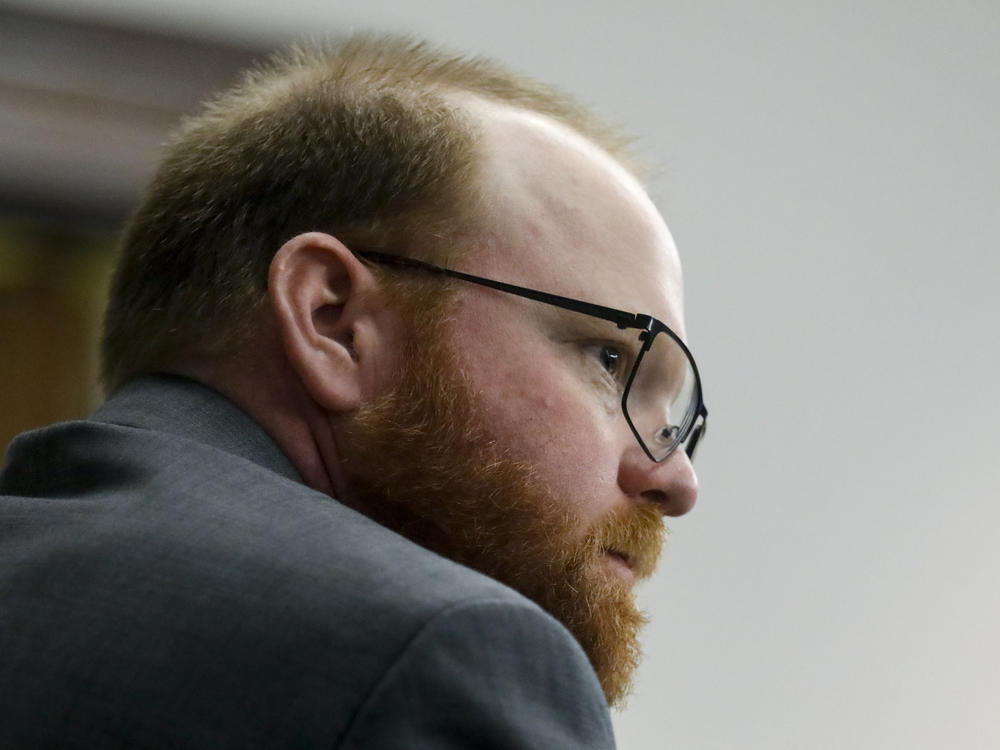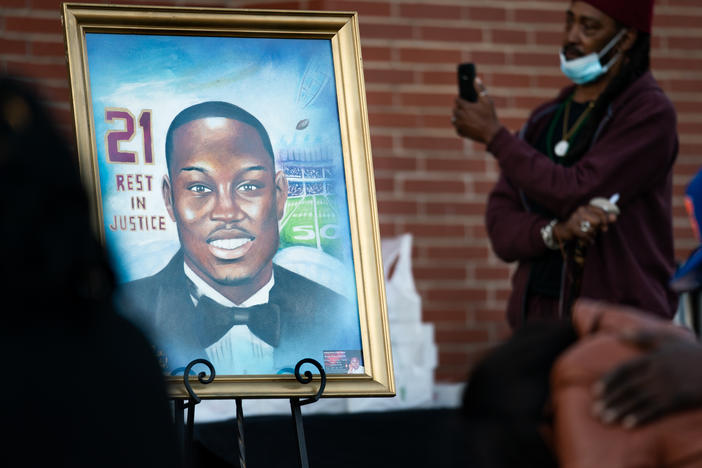Section Branding
Header Content
Jurors in the trial over Ahmaud Arbery's killing end first day of deliberations
Primary Content
Updated November 23, 2021 at 6:49 PM ET
Jurors have wrapped up the first day of deliberations without reaching a verdict in the case of the three men accused of murder and other charges over the killing of Ahmaud Arbery in Glynn County, Ga., in February 2020.
The nearly all-white jury entered deliberations Tuesday and after five hours and 15 minutes, said they were finished for the evening. They will resume debating the charges tomorrow at 8:30 a.m. CT.
During a roughly two-hour response to closing arguments by the defense during the early morning, lead prosecutor Linda Dunikoski outlined the charges against the defendants and made the case for their guilt.
She told the jury that the men had no right to claim self-defense as they were the ones who started the confrontation with Arbery, chasing him for roughly five minutes.
"You can't claim self-defense if you are the unjustified, initial aggressor," Dunikoski said. "This isn't the Wild West."
Travis McMichael; his father, Gregory McMichael; and William "Roddie" Bryan have all been charged with murdering Arbery. Arbery, 25, was jogging through a suburban neighborhood when the three men started pursuing him in pickup trucks. Travis McMichael shot Arbery dead.
The trial has been one of the most closely watched cases amid the ongoing reckoning over racial injustice. Major details of Arbery's death emerged in the weeks before George Floyd was killed by Minneapolis police. No one was charged in the case until months after Arbery's death, after video of his killing surfaced online.
The jury is composed of 11 white people and one Black person, despite Glynn County having a population that is nearly 27% Black.
After the prosecution's rebuttal, Superior Court Judge Timothy Walmsley gave the jury its instructions before sending the jurors out of the courtroom to begin deliberations. The jury will face several complicated legal questions, including what's justifiable under the state's now-repealed citizen's arrest law.
The men all face the same nine counts: one count of malice murder, four counts of felony murder, two counts of aggravated assault, one count of false imprisonment and one count of criminal intent to commit a felony.
Travis McMichael, the man who shot Arbery as the two men tussled, testified that he feared for his life. All three defendants have entered a plea of not guilty to the charges.
Dunikoski said that the men threatened Arbery with their trucks, chasing him and then confining him with their vehicles.
She said there's no evidence Arbery ever committed a crime in the neighborhood, nor was he seen on surveillance video stealing anything from a construction site he walked through on several occasions.
The state argued that the defendants had not witnessed Arbery committing any crime on the day he was killed, nor had knowledge of any such offense. Dunikoski said that when a 911 dispatcher asked Gregory McMichael what his emergency was, McMichael said, "There's a Black male running down the street."
The defense and prosecution have wrangled over differing interpretations of the repealed citizen's arrest law — which dated back to the Civil War. The state has argued that a citizen's arrest must be made immediately once an offense has taken place and cannot be made days or months later. The defense, meanwhile, argued that Travis McMichael saw Arbery at the construction site 12 days earlier and was making a citizen's arrest on that basis.
Prosecutors say that's not enough to justify a citizen's arrest days later and that if the defendants lacked justification to make a citizen's arrest, then they're guilty on all charges.
In her final remarks to the jury, Dunikoski said that the case isn't about whether the defendants are good people or bad people. "It's about responsibility. It's about holding people accountable and responsible for their actions," she said. "Nobody gets a free pass."
Wanda Cooper-Jones, Arbery's mother, spoke briefly outside the courthouse after Dunikoski finished her rebuttal.
"She presented that evidence again very well," said Cooper-Jones. "I do think that we will come back with a guilty verdict, and I want to leave with this: God has brought us this far, and he's not gonna fail us now. We will get justice for Ahmaud."
Copyright 2021 NPR. To see more, visit https://www.npr.org.
Bottom Content





